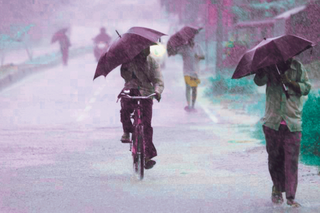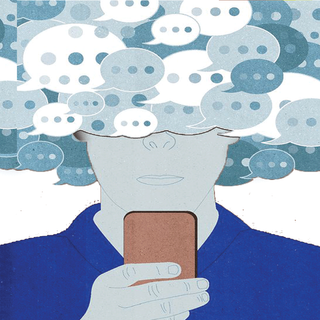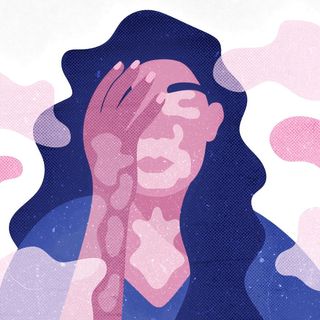
Cyclone Fani Showed How Privilege Dulls the Blow of Natural Disasters
“Sitting in multistory buildings, with easy access to amenities, what have we got to lose?”

It is 1:00 a.m., a couple of hours after Cyclone Fani made landfall in Odisha. I am sitting in bed, covered in a blanket, typing this. The trees outside, as though stuck in an Instagram boomerang, are bending to half their size and back. Over and over again, I watch the rain pour like an opaque sheet over the town of Kolkata. Most say that it is a welcome relief after the fatal heat wave of this summer. Some say that the cyclone could not have come at a better time. Universities are shut, exams are postponed, summer vacations have been extended — the rejoice is deafening. Something within me twists uncomfortably knowing that some of us have not been so lucky. Some of us are out there, in the cold night, praying may their roof not collapse, may their crops not die, may the ocean not swallow them whole.
In 2009, when Cyclone Aila brought about widespread devastation, we clung to our loved ones under concrete roofs, watching the storm unfold, like a movie. For the longest time, the urban privileged have been the audience to the grand fetishizing of poverty. Livewire reports, “We crave news of the wreckage, details of lost families, videos of people weeping with inconsolable grief. Why? It makes us feel safe in comparison.” In addition, the urban rests in its ignorance of the ugly reality, as long as they are sheltered from it. As the news channels reported Sundarban’s complete decimation, we repeatedly called the number of our tourist guide who lived there. In 2009, his house was almost swept away in the flood when Aila broke the makeshift dams. They did not have clean drinking water, the land all around had mosquito infestations, and they prayed each day to be able to make it out alive. When we met him, he had grown to a third of his size. He seemed to have shrunk overnight. I saw him walk, in tattered clothes, dirt on his face, and all I could think about was how, back in Kolkata, people were celebrating the rain while it ruined so much for this tourist guide, and several others who had taken the morning boat to Kolkata looking for supplies.
‘Privilege blindness‘ is a term that encompasses a disease all of us embody. For ages, our Indian history books have taught us to blame the white male, the colonizer. But I doubt that we fare any better in the domain of empathy. The Desensitization Theory in mass communication asserts that the modern individual does not react intensely to news of violence, death, or devastation, because it is a recurring process. To put it simply, we no longer care about the sad business because we are used to it. This is perhaps why there are people praying for more rain, more storms, more holidays, on account of the cyclone. Sitting in multistory buildings, with easy access to amenities, what have we got to lose?
If ‘privilege blindness’ was restricted to a personality trait, then it could perhaps be overlooked. But this phenomenon bleeds into the misuse of aid for the victims. In 2009, when my parents and I were collecting supplies for the Aila relief, a lot of our contacts came forward with bags of clothes. When we received them, they looked big, felt heavy, and we were overjoyed by their benevolence. While sorting them into piles (and thank heavens that we did), we discovered that some of them had put stray scraps of tin into the bag to make it feel heavier. They had no idea that we would be going through each individual piece of clothing. It stunned us particularly, to see that more than half of the huge pile consisted of stained, torn, and unusable clothing.
The supplies we had to throw away mostly came from the rich, the crème de la crème, the high society folks. In The Atlantic piece titled ‘Why the Rich Don’t Give to Charity,’ Ken Stern argues, “…some experts have speculated that the wealthy may be less generous—that the personal drive to accumulate wealth may be inconsistent with the idea of communal support. Last year, Paul Piff, a psychologist at UC Berkeley, published research that correlated wealth with an increase in unethical behavior: ‘While having money doesn’t necessarily make anybody anything,’ Piff later told New York magazine, ‘the rich are way more likely to prioritize their own self-interests above the interests of other people.’” Stern goes on to assert that a “series of controlled experiments” had revealed that people from lower income groups were repeatedly seen to be more giving with their limited supplies, than their rich counterparts.
Related on The Swaddle:
When You Just Can’t Care Anymore; You’ve Got Compassion Fatigue
When I speak of the upper class, I tend to leave out celebrities. It is hard to tell apart their genuine emotion from showbiz instinct. In a Business Insider piece titled, ‘The .1% is Using a New Tactic to Show Off Its Wealth,’ Richard Kirshenbaum writes about the ‘reverse brag’. The rich subtly belittle their huge contributions, in order to have other people reemphasize a greatness they are implicitly aware of. I was 12 years old during Aila. At 22, last year during the Kerala floods, I found used old underwear, and a general flashback of 2009, while rummaging through the donations for the Kerala Relief Fund. Ten years, and nothing has quite changed in the hearts of the bourgeoisie.
In George Simmel’s The Metropolis and Mental Life, the sociologist wrote about the ‘blasé attitude.’ He theorized that the monotonous recurrence of daily incidents leads citizens to employ a sort of shutting down of their senses. As though we are running on autopilot. But does a diagnosis absolve us of our social responsibility?
Tonight, I don’t hear dogs barking. Tonight, I don’t see the homeless lying on the street opposite my window. They are sleeping under solid roofs, on apartment landings of my building, and several others, as the gates were opened to welcome them in. Some people I know made their homes accessible to strangers who needed cover. It is comforting to watch people recognize their privilege, and rise up to the responsibility that comes with it. As I go to bed tonight, I hope that I wake up to clear skies. I would trade this chilly comfort for scorching heat, anytime.
Meghalee Mitra writes like her life depends on it. She smells books for a living, and believes that there is magic in the alleyways of her Kolkata neighborhood. Among other genres, she also writes about Netflix in a secret attempt to justify the addiction. When taking a break from hyper anxiety, and bunjee jumping on patriarchy, she also likes to breathe.
Related


Phone Stress Is a Real Thing and It Might Be Shortening Our Lives
